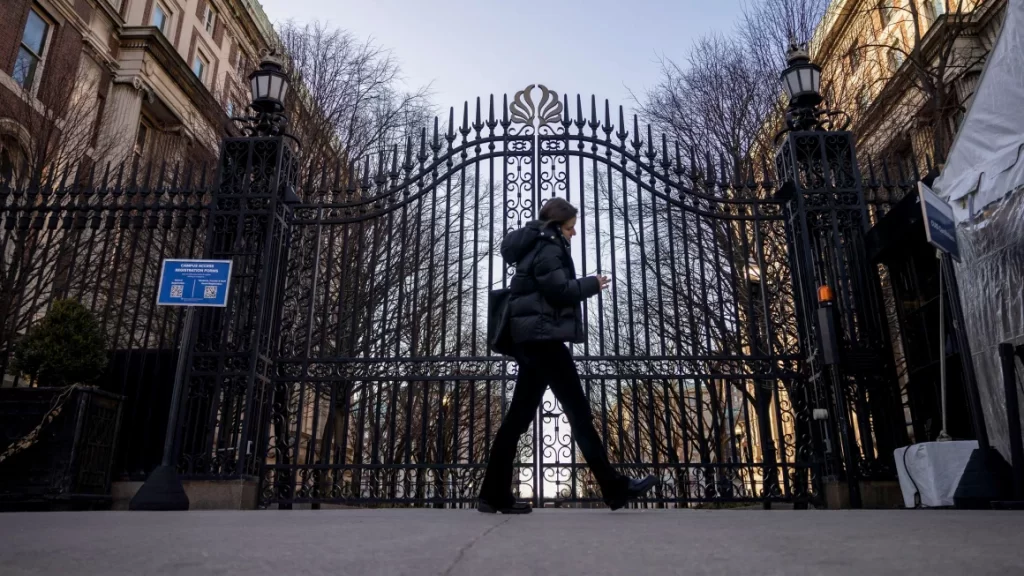Columbia University students returned to campus Monday to find significant policy changes implemented during their spring break, a move seemingly aimed at satisfying the Trump administration’s demands to release $400 million in federal funding.
The university announced sweeping reforms, including stricter protest regulations, a mask ban, potential sanctions for violating student groups, and an immediate review of Middle East studies programs and admissions, all in response to the administration’s concerns about antisemitism on campus.
These changes follow President Trump’s threats to cut federal funds to universities accused of tolerating antisemitism amidst the Israel-Hamas conflict. Columbia’s status as a leading institution has amplified the impact of these policy shifts, sparking fears of a broader crackdown on campus protests and academic freedom.
Students like Shubhanjana Das from the Columbia Journalism School express concern that these changes are not merely about funding but signal a wider attack on higher education. She highlighted the ambiguity surrounding the implementation of these policies, particularly regarding the role of armed officers in enforcing protest restrictions.
The arrest of Mahmoud Khalil, a Columbia graduate and pro-Palestinian activist, has further heightened tensions. The Justice Department accuses Khalil of immigration fraud, alleging he failed to disclose affiliations with UNRWA and the British Embassy in Beirut. His attorney, Baher Azmy, dismisses these claims as a weak attempt to justify his detention.
The new policies effectively ban protests inside and immediately outside academic buildings, require student ID disclosure during demonstrations, and prohibit face coverings. The university has also hired additional campus police trained to handle protests.
A Jewish student, speaking anonymously, described a “climate of fear” on campus, fearing harassment from security or police for expressing their views. They criticize the mask ban as a tool for surveillance.
The university’s definition of antisemitism, which includes criticism of Israel, has also drawn controversy. The administration’s move to sanction student groups violating these policies raises concerns about free speech.
Professor Karl H. Jacoby argues that the Trump administration’s demands represent government overreach and a violation of academic freedom. He fears these changes could set a precedent for further government intervention in university affairs.
The university’s review of Middle East studies, aimed at ensuring “fairness,” remains vague, with details on its scope and timeline unclear.
The reforms have been endorsed by the university’s board of trustees, who claim they align with the school’s values. However, the impact on federal funding and student sentiment remains to be seen.
Students like Das express concern about the lack of clarity regarding the implementation of these policies, which has fueled fear and uncertainty. They predict a turbulent spring semester as students grapple with the new campus environment.



